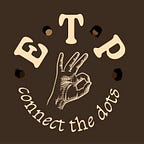They don’t really love me, but they love me
Lessons from Headie One and Othello
This is another piece from the archives, written in the first lockdown when issues of race were even more so at the forefront of my mind. I thought the comparison drawn here was an interesting one so I might as well share it to hopefully provoke some conversations.
“These bad Bs coming to the niz They don’t really love me, but they love me” declares Headie One in 18Hunna, his collaboration track with Brit Award winner and prodigious talent — Dave. What does Headie One mean by this? My understanding is that Headie is describing how the girls coming to see him in his hometown of Tottenham, North London love him superficially as the rapper Headie One but they don’t really love him for the man he is — Irving Adjei. With this seemingly simple bar, Headie reveals a pattern that isn’t exclusive to his lived experience but has been evident in society for far too long.
In the words of J Cole “ let me take you back now, like I do so well”. Having studied and performed Shakespeare’s Othello in school, I would argue that it serves as an excellent allegory for the plight of the Black Man in society. Spoiler alert: At the start of the play, Othello was a venerable Moorish general who was widely respected for his valiant deeds in battle but by the end of the play Othello ends up killing his wife and himself. I don’t want to bore anyone with an unnecessarily detailed synopsis of the play — google is your friend — rather, I want to briefly touch upon certain themes from Othello that are prevalent in today’s society and need to be addressed. Namely, the hypersexualisation of black men, the vilification of black men, and the mental health struggles we deal with.
1. The hypersexualisation of black men
The villain of the play, Iago says to the father of Othello’s love interest — Desdemona: “An old black ram is tupping your white ewe” reducing Othello to a beast, and playing on the classic black-white antithesis that is used to stoke divisions to this day. I’m sure many of my brothers and sisters are familiar with this phenomenon where we are reduced to our “assets”.Even the most talented of us cannot escape it(see Chapter 4 of Akala’s ‘Natives’ entitled Linford’s Lunchbox). While some may enjoy the attention that comes with this, the way in which some people talk about black men is incredibly dehumanizing. Believe it or not, it’s not always a compliment when you “oNlY gO fOr bLaCk gUys”. This is evident in Othello’s girl Desdemona who basically likes Othello just for the clout he has as a revered army general, kind of like the girls Headie is referring to.
2. The vilification of Black Men
The vilification of black men has been talked about for ages so I won’t flog a dead horse but for those who don’t believe it, ask yourself why is the Mainstream Sports Media so obsessed with Pogba’s trim but you never hear them going on about Jack Grealish’s copious amount of hair gel or his low socks when he has a bad game. Similarly, the characterisation of black men as “threatening” when we are simply existing can have harmful effects on the psyche as we have to be hyper-aware of the way we carry ourselves.
3. Our mental health concerns are overlooked
Mental ill-health is an issue that still has a large degree of taboo in the Black community and what does us no favours is when our cries for help are met with scorn and derision. Even recently, Will Smith’s heartbreak at his wife’s affair with him has become a meme. Like Othello showed, we can’t always be heroes. Some days we just want space because life is hard and that should be okay.
